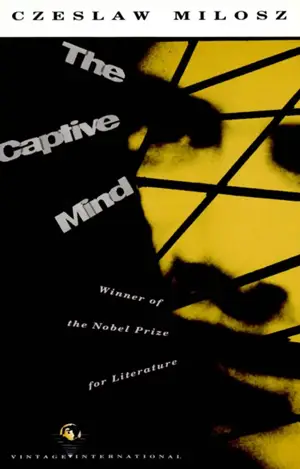The Captive Mind

The Captive Mind is divided into four parts. Each part examines a different mindset adopted by intellectuals in response to the oppressive political environment. Miłosz analyzes the impact of communist ideology on the human psyche. He delves into how intellectuals compromised their beliefs, suppressed their individuality, and conformed to the demands of the ruling regimes.
Beta
The first part discusses the "Beta" mindset. The "Beta" is characterized as one who embraces Marxist ideology as a means of acquiring power, prestige, and material benefits. Miłosz observes how intellectuals in this mindset rationalize their actions and suppress their doubts and moral qualms. Doing such permits them to maintain their position within the system.
Gamma
The second part of The Captive Mind explores the "Gamma" mindset, which involves intellectual isolation and withdrawal from political engagement. Miłosz reflects on the struggle of intellectuals who retreat into aestheticism and a self-imposed intellectual exile.
Delta
The third part examines the "Delta" mindset, which involves intellectual resistance and opposition to the ruling regime. Miłosz portrays the bravery of those who risk their lives to defend their beliefs and engage in underground activities.
Alpha
The final part, "Alpha," explores the mindset of those intellectuals who manage to preserve their independence and critical thinking. Miłosz emphasizes the importance of maintaining one's integrity and individuality in the face of ideological conformity.